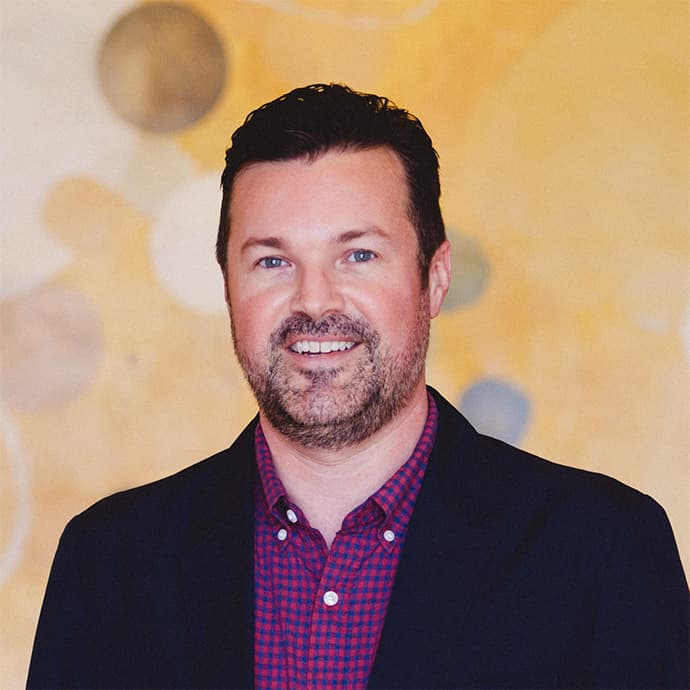How to Rebuild Relationships in Recovery



Marisa worked as a Behavioral Health Worker for at-risk youth in the school setting and as a Mental Health Worker for adolescents in a partial hospitalization program, where she worked closely with therapists to implement individualized treatment plans and prevention programs, as well as intervening when problematic behaviors arose.

Dr. Scot Thomas received his medical degree from the University of California, San Diego School of Medicine. During his medical studies, Dr. Thomas saw firsthand the multitude of lives impacted by struggles with substance abuse and addiction, motivating him to seek a clinical psychiatry preceptorship at the San Diego VA Hospital’s Inpatient Alcohol and Drug Treatment Program.




Marisa worked as a Behavioral Health Worker for at-risk youth in the school setting and as a Mental Health Worker for adolescents in a partial hospitalization program, where she worked closely with therapists to implement individualized treatment plans and prevention programs, as well as intervening when problematic behaviors arose.

Dr. Scot Thomas received his medical degree from the University of California, San Diego School of Medicine. During his medical studies, Dr. Thomas saw firsthand the multitude of lives impacted by struggles with substance abuse and addiction, motivating him to seek a clinical psychiatry preceptorship at the San Diego VA Hospital’s Inpatient Alcohol and Drug Treatment Program.
Addiction doesn’t just affect the person using substances. Chronic drug and alcohol use can strain relationships, cause deep emotional pain, and lead loved ones to develop unhealthy coping strategies, like enabling.
Below, you’ll learn how addiction impacts relationships and how to rebuild them during recovery. We’ll cover ways to repair damage, regain trust, and find support as you heal.
How Addiction Affects Relationships
Addiction impacts more than the person who misuses drugs or alcohol. It can take a heavy toll on the people around them, including spouses, family members, and friends.
In some cases, the effects of addiction can even ripple through generations. Not every family is affected in the same way. Outcomes often depend on family structure, coping styles, and how everyone adapts to the presence of substance misuse.
Still, many families experience similar painful patterns. People struggling with addiction may engage in behaviors that damage trust and stability, such as:1
- Lying.
- Stealing.
- Engaging in violence.
- Breaking the law.
- Saying hurtful things.
- Being unfaithful.
- Displaying negative communication (complaints, criticism, expressions of displeasure).
- Inconsistent parenting.
- Self-medicating.
Over time, these behaviors can make loved ones feel resentful. Loved ones may also develop codependent patterns, such as enabling substance use, taking on a caretaker role, or consistently putting the other person’s needs ahead of their own.
Because of these learned behaviors, family members and friends often benefit from therapy as well.
How to Repair Relationships After Addiction
Repairing relationships while in recovery requires hard work and commitment. Consistent positive and healthy behaviors can help to mend relationships in the long run.
If you have gotten sober and are ready to work on your relationships, know that there are several actions you can take to re-form healthy bonds. These include:
Make Amends Where Possible
If you are working through the 12 Steps, you will eventually reach Step 9 of AA, which entails apologizing to those you have hurt and working to make amends. If you aren’t in a 12-Step program, you can still atone for your mistakes. This could include paying people back after stealing money, getting a car fixed, or paying legal fees.
Consider Couples or Family Therapy
Couples or family therapy focuses on repairing dysfunctional relationships and improving communication and conflict resolution skills.
Stay Focused on Stability
If you lost your job, see if you can return or begin looking for a new one. You can also find success by engaging in healthy hobbies, making a new sober group of friends, spending quality time with your family, and following your relapse prevention plan.
Commit to Being Trustworthy
Follow through with your promises. Show up on time for plans and obligations, do what you say you will do, and show your dedication to a new life through your actions.
Practice Communication Skills
Learn to communicate your needs calmly and effectively, and listen and respond to your loved one’s needs. Make eye contact, avoid interrupting or redirecting the conversation to yourself, and refrain from passing judgment.
Keep a Journal
Sometimes confessing the mistakes you made while misusing substances will hurt your loved one even further. You might not want to disclose details that can cause pain and suffering, and you may also need an outlet for your emotions. Keeping a journal allows you to write down things you might not want to say to your friend or family member.
Stay Engaged In Your Loved One's Lives
Be an active participant in the lives of your loved ones. Show interest in their hobbies and pursuits, and offer support and encouragement.
If you don’t want to meet face-to-face or call, try writing a letter or an email to initiate contact. If you receive a positive response, you may want to suggest meeting up to apologize and make amends. If not, give your loved one time to process the information and wait until they’re ready to connect with you.
Tips for Regaining Trust
Regaining trust after an addiction takes time. People who are misusing drugs or alcohol can become unreliable, break promises, and neglect responsibilities. Don’t become angry or frustrated if your loved one is hesitant to trust you.
Some tips for regaining trust include:
- Be prepared to face resistance. Not everyone is going to be open and welcoming. Some family members or friends may be skeptical or unwilling to trust you again.
- Put yourself in your loved ones’ shoes. They may be suffering from emotional, financial, or mental health problems as a result of your addiction. Try to be empathetic and understanding of their situation.
- Be patient. It takes time and effort to return to the level of trust you had before misusing drugs or alcohol.
- Learn to forgive yourself. You won’t be able to move on and build a positive and healthy relationship if you continue to carry around guilt about your past behaviors. You can’t change the past, but you can control your future actions.
- Remember that you can only change yourself. You can’t change how other people perceive you. Focus on making improvements and re-establishing connections with others.
Get Support for Your Recovery
Rebuilding trust after addiction takes time, but the right support can make it easier. If you or someone you love needs support, Recovery.com can help you find and compare treatment centers that offer evidence-based addiction care, plus services like family therapy, couples counseling, and aftercare planning. Take the next step toward healing—for you and the people you care about.
FAQs
-
Substance Abuse and Mental Health Services Administration. (2004). Substance Abuse Treatment and Family Therapy. Treatment Improvement Protocol (TIP) Series, No. 39. Rockville, MD. https://www.ncbi.nlm.nih.gov/books/NBK64258/
-
McCrady, B. S., & Flanagan, J. C. (2021). The Role of the Family in Alcohol Use Disorder Recovery for Adults. Alcohol research: current reviews. https://pmc.ncbi.nlm.nih.gov/articles/PMC8104924/
-
Substance Abuse and Mental Health Services Administration. (2021). The Importance of Family Therapy in Substance Use Disorder Treatment. Advisory. https://library.samhsa.gov/sites/default/files/pep20-02-02-016.pdf
Our Promise
How Is Recovery.com Different?
We believe everyone deserves access to accurate, unbiased information about mental health and recovery. That’s why we have a comprehensive set of treatment providers and don't charge for inclusion. Any center that meets our criteria can list for free. We do not and have never accepted fees for referring someone to a particular center. Providers who advertise with us must be verified by our Research Team and we clearly mark their status as advertisers.
Our goal is to help you choose the best path for your recovery. That begins with information you can trust.










